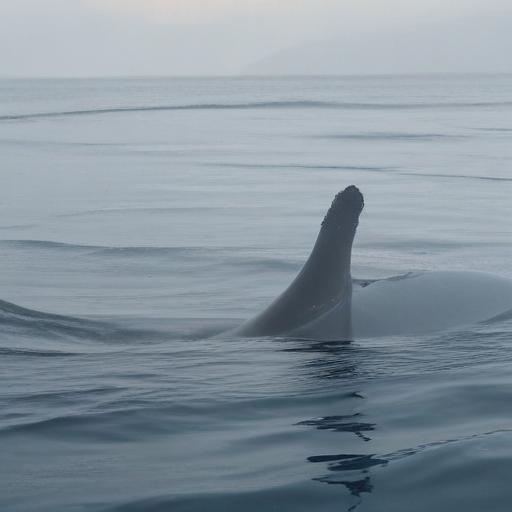The enchanting songs of whales, echoing through the ocean’s depths, are now at risk of being overshadowed by the relentless noise of global shipping. This increase in maritime activity poses a critical challenge to the way these majestic creatures communicate, revealing an urgent need to address the impact of acoustic pollution in our oceans.
Whale songs, essential for mating and navigation, feature complex sounds that can travel vast distances underwater. Unfortunately, as shipping lanes expand and more vessels navigate the seas, the natural acoustics of the ocean are increasingly compromised. The continuous low-frequency noise generated by cargo ships and other marine traffic resembles a persistent hum that can mask whale calls, complicating their ability to communicate effectively—akin to trying to hold a conversation in a bustling café.
Recent studies have shown that whales are adapting their songs in response to this heightened noise pollution. For instance, North Atlantic right whales have been observed increasing the amplitude of their calls in an effort to be heard over shipping noise, a behavior reminiscent of how humans raise their voices in loud environments. However, this adaptation comes with limitations; excessive vocalization can lead to energy depletion, making it unsustainable for long-term survival.
Moreover, the implications for social interactions and reproduction within whale populations are serious. Complex songs play a vital role in maintaining social bonds and attracting mates. When these songs are disrupted, it can hinder mating success and disrupt population dynamics, presenting significant concerns for species like humpback and blue whales that rely heavily on these vocal displays.
The challenge grows as climate change opens up new shipping routes in previously untouched Arctic waters, exposing species like bowhead whales and narwhals to unfamiliar sounds in their environments. These species may struggle to adapt to the increased noise, threatening their survival in these changing habitats.
On a positive note, there are ongoing technological advancements aimed at reducing ocean noise. Innovations in ship design, speed adjustments, and re-routing of shipping lanes away from critical habitats are being tested, with encouraging results in minimizing underwater noise pollution. These efforts highlight a growing recognition of the need to balance commercial interests with marine conservation.
With increasing public awareness fueled by whale watching tourism and media coverage, more people are becoming conscious of the effects of human activity on marine ecosystems. This heightened awareness may foster collective action and support for policies that aim to protect whales and their communication.
Ultimately, the plight of whale songs serves as a reminder of our responsibility to listen to and preserve the natural world. As we navigate our modern lives, we must ensure that the ancient and beautiful language of these ocean giants continues to resonate through the depths.
